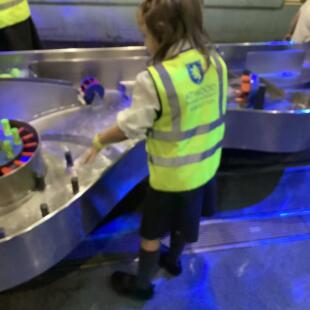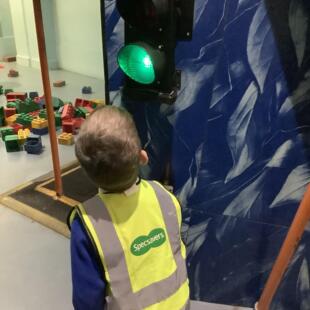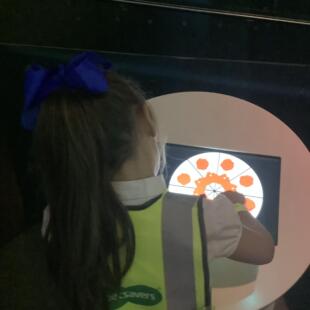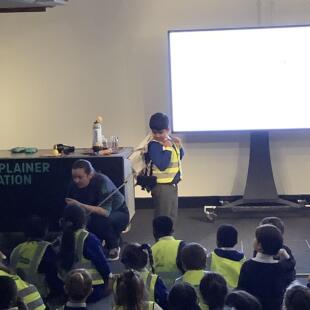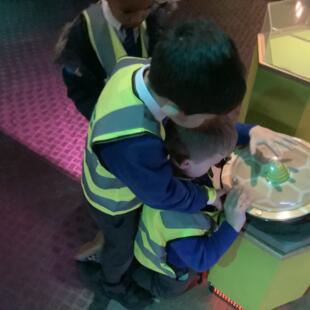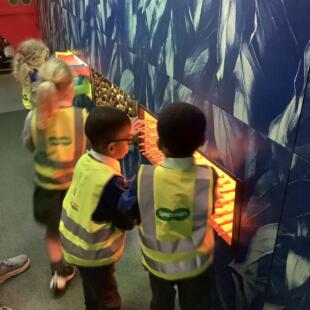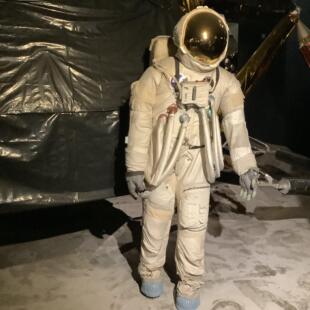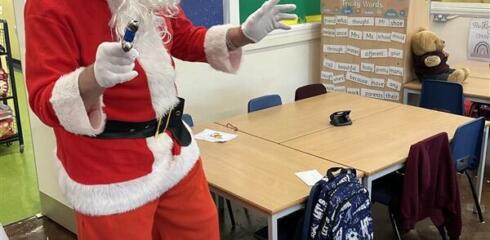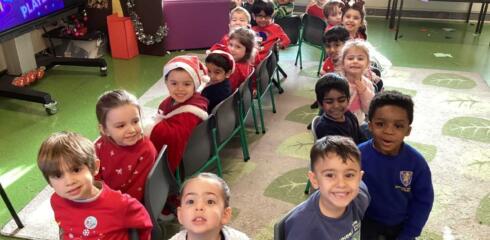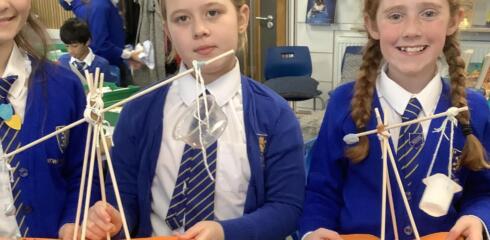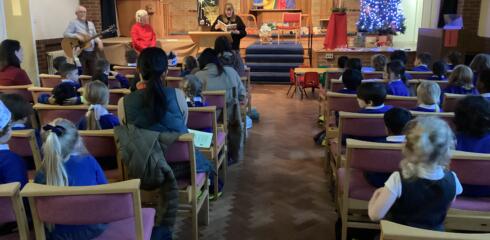On Tuesday, Year 1 visited the Science Museum and had lots of fun. When we arrived at school, we quickly got ready and were on our way to the museum by bus, train and tube. After arriving, we had lunch and excitedly walked to our activities. Blue Class visited the Pattern Pod first and explored an abundance of patterns they could see and touch. Many of these patterns were light displays and there was even a dancing station! Violet Class started with the Garden where they enjoyed making the biggest tower and playing with the water feature. Both classes then swapped so they could enjoy both sessions. After these activities, Year 1 launched into a Destination Space workshop and found out many interesting facts about space. Before we went home, we visited the space gallery and ticked off all of the items on the space scavenger hunt. On the way home, we discussed what we had found out during the day and thought about all the great things we had seen. It was such a fantastic day and we would like to thank all of the helpers who made the trip possible.





